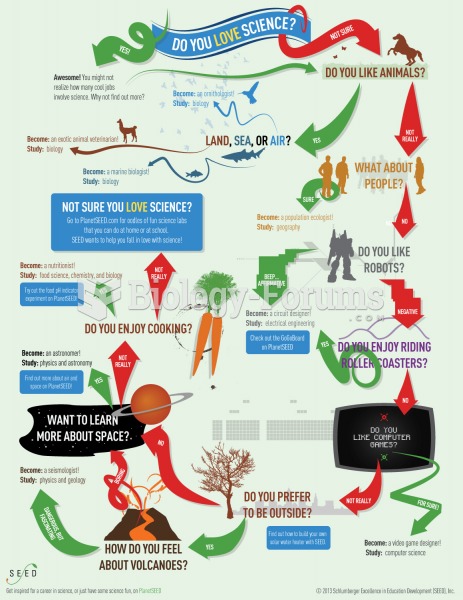>"Age:"
35
>"Gender:"
Male
>"Occupation:"
Post-doctoral Research Officer (academic biological scientist)
>"What is science?"
A method for descrying the operations and rules of the physical laws of the universe, through experimentation, observation, hypothesis, and induction.
>"Do you like science, why or why not?"
Yes (I do it for a living).
I enjoy discovering and learning about living organisms.
>"What are the steps in the scientific process?"
Form an Hypothesis, based on existing data.
Design an Experiment to test this hypothesis.
Re-examine the Hypothesis in the light of the new evidence: reject if disproved, refine if required.
Design a new experiment to further test the hypothesis.
Rinse and repeat ad infinitum.
>"What is a scientific theory, give an example?"
A model for explaining observed phenomena.
An example is the Heliocentric Theory of the Solar System, which suggests the sun is at the centre of the solar system, and not the earth (it explains the observed movements of the planets in the night sky).
>"What is a fact, give an example?"
A fact is a phenomenon that has been observed to be the case. As an example, based on the above theory, Jupiter, Saturn, Uranus and Mars occasionally appear to move "backwards" in their track across the sky ("retrograde motion").>"What is a scientific law, give an example?"
A Law is an observation that has been repeated so many times, and in so many circunstances that it appears to be a universal truth.
As an example, the Law of Gravity says that all matter is attracted to all other matter in a manner proportionate to their masses and inversely proportionate to the square of their distance of separation.
>"What is the difference between astrology and astronomy?"
Astrology is the idea that the position and movement of the planets in the night sky; which sign of the zodiac they each are in, has an influence on the lives of people on earth. It is not a science; it is a pseudo-science.
Astronomy is the scientific field which covers the investigation of stellar and extra-terrestrial phenomena, including planets, stars, galaxies, etc.
>"What is evolution?"
A change in the frequency of alleles in the gene pool of a population of organisms over time and successive generations.
>"Why do somepeople call evolution a theory?"
Evolution is both a fact and a theory.
The above description of the process of evolution is unquestionable; we observe it all the time.
The Theory of Evolution by Natural Selection is a theory which *explains* this observed evolution.







